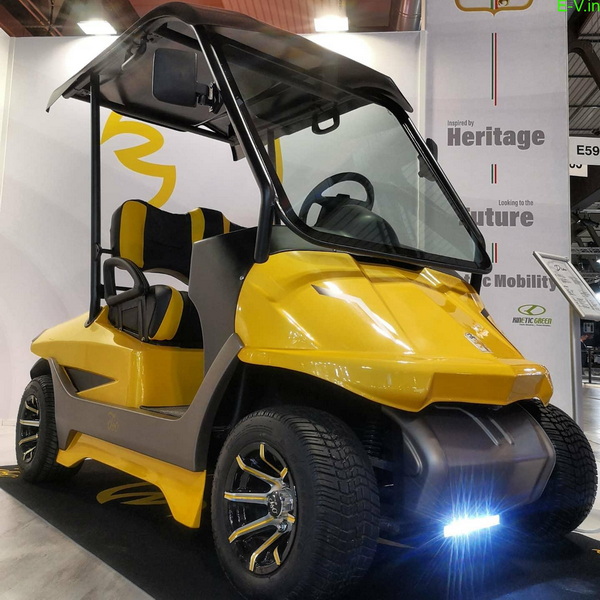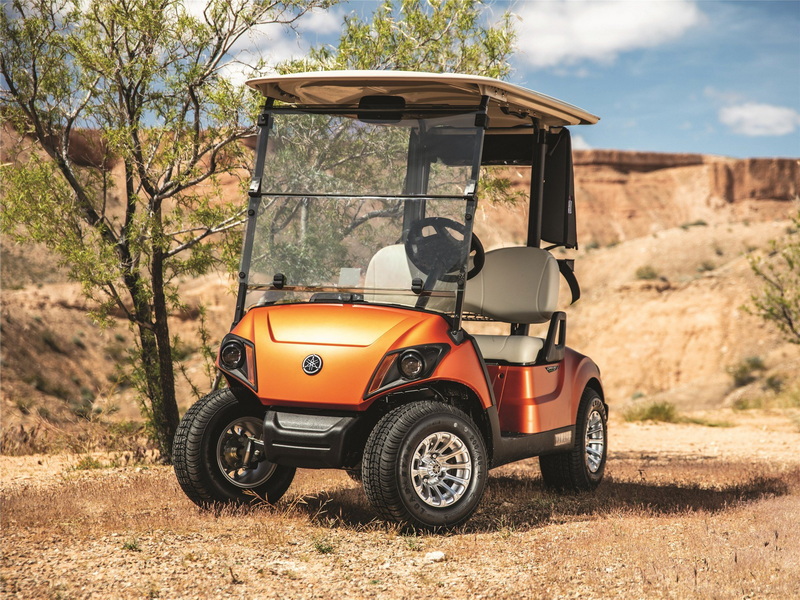Content Menu
● Understanding Electric Golf Cart Range
>> Battery Types
>> Factors Affecting Range
>> Practical Tips for Maximizing Range
>> Real-World Examples
>> Innovations in Electric Golf Carts
>> The Future of Electric Golf Carts
>> Conclusion
● Frequently Asked Questions
>> 1. How long does it take to charge an electric golf cart?
>> 2. Can I use my electric golf cart in the rain?
>> 3. What maintenance is required for electric golf carts?
>> 4. Are electric golf carts suitable for off-road use?
>> 5. How can I increase the lifespan of my electric golf cart battery?
Electric golf carts have become increasingly popular not only on golf courses but also in various other settings, including residential communities, parks, and resorts. Their eco-friendliness, quiet operation, and ease of use make them an attractive option for many. However, one of the most common questions potential users have is, "How far can an electric golf cart go on a single charge?" In this article, we will explore the factors that influence the range of electric golf carts, the types of batteries used, and practical tips for maximizing distance.

Understanding Electric Golf Cart Range
The range of an electric golf cart refers to the distance it can travel on a single charge. This distance can vary significantly based on several factors, including the type of battery, the weight of the cart, the terrain, and driving habits.
Battery Types
Electric golf carts typically use one of two types of batteries: lead-acid or lithium-ion.
- Lead-Acid Batteries: These are the traditional battery type used in many electric golf carts. They are generally less expensive but have a shorter lifespan and lower energy density compared to lithium-ion batteries. A standard lead-acid battery can provide a range of about 25 to 30 miles on a full charge under optimal conditions.
- Lithium-Ion Batteries: These batteries are becoming more popular due to their higher energy density, longer lifespan, and lighter weight. A golf cart equipped with lithium-ion batteries can often travel between 40 to 50 miles on a single charge, and in some cases, even more.
Factors Affecting Range
Several factors can influence how far an electric golf cart can go:
1. Terrain: The type of terrain plays a significant role in determining the range. Flat surfaces allow for longer distances, while hilly or uneven terrain can drain the battery more quickly due to increased energy consumption.
2. Weight: The total weight of the cart, including passengers and cargo, affects the range. Heavier carts require more power to move, which can reduce the distance traveled.
3. Driving Habits: Aggressive driving, such as rapid acceleration and high speeds, can significantly decrease the range. Smooth and steady driving can help maximize distance.
4. Weather Conditions: Extreme temperatures can impact battery performance. Cold weather can reduce battery efficiency, while hot weather can lead to increased energy consumption for cooling.
5. Battery Maintenance: Proper maintenance of the battery can also affect its performance and lifespan. Regularly checking the battery's water levels (for lead-acid batteries) and ensuring it is charged correctly can help maintain optimal performance.
Practical Tips for Maximizing Range
To get the most out of your electric golf cart, consider the following tips:
- Plan Your Route: If you know the terrain and distance you need to cover, plan your route to avoid steep hills and rough terrain whenever possible.
- Limit Weight: Try to minimize the weight of the cart by reducing unnecessary cargo and limiting the number of passengers.
- Drive Smoothly: Avoid sudden starts and stops. Accelerate gently and maintain a steady speed to conserve battery power.
- Charge Regularly: Make it a habit to charge your golf cart after each use, especially if you plan to use it again soon. This will help ensure that you always have a full battery when you need it.
- Use Eco Mode: Many modern electric golf carts come with an eco mode that optimizes performance for maximum range. If your cart has this feature, be sure to use it.

Real-World Examples
Many users have reported their experiences with electric golf carts, noting the distances they have been able to achieve. For instance, a golf cart equipped with a lithium-ion battery can easily cover the distance of a standard 18-hole golf course, which is typically around 5 to 7 miles. In residential communities, users have reported traveling to nearby amenities, such as grocery stores or community centers, without needing to recharge.
Innovations in Electric Golf Carts
The electric golf cart industry is continually evolving, with manufacturers introducing new technologies to enhance performance and range. Some of the latest innovations include:
- Regenerative Braking: This technology allows the cart to recover energy during braking, which can help extend the range. By converting kinetic energy back into stored energy, regenerative braking systems can significantly improve efficiency.
- Smart Battery Management Systems: These systems monitor battery health and performance, optimizing charging and discharging cycles to prolong battery life. They can provide real-time data on battery status, helping users make informed decisions about charging and usage.
- Solar Panels: Some electric golf carts are now equipped with solar panels that can help recharge the battery while the cart is parked, providing an additional source of energy. This feature is particularly useful in sunny climates, where solar energy can be harnessed effectively.
The Future of Electric Golf Carts
As technology continues to advance, the future of electric golf carts looks promising. Manufacturers are investing in research and development to create more efficient batteries, lighter materials, and smarter systems. The integration of artificial intelligence and IoT (Internet of Things) technology could lead to even more sophisticated golf carts that can communicate with users and optimize their performance based on real-time data.
Moreover, as environmental concerns grow, the demand for electric vehicles, including golf carts, is expected to rise. This shift towards sustainability will likely drive further innovations in battery technology and energy efficiency, making electric golf carts an even more viable option for various applications.
Conclusion
In summary, the range of an electric golf cart can vary widely based on several factors, including battery type, terrain, weight, and driving habits. While standard lead-acid battery carts may achieve 25 to 30 miles on a single charge, those equipped with lithium-ion batteries can often travel 40 to 50 miles or more. By understanding these factors and implementing practical tips, users can maximize the distance their electric golf carts can travel.
As electric golf carts continue to evolve with new technologies, their range and efficiency are likely to improve, making them an even more appealing option for various applications. Whether you're using a golf cart on the course, in your community, or for recreational purposes, knowing how far it can go will help you plan your journeys effectively.

Frequently Asked Questions
1. How long does it take to charge an electric golf cart?
Charging times can vary based on the type of charger and battery. Typically, it takes about 4 to 8 hours to fully charge a golf cart battery. Fast chargers can reduce this time significantly.
2. Can I use my electric golf cart in the rain?
Most electric golf carts are designed to be weather-resistant, but it is advisable to avoid heavy rain and flooding. Always check the manufacturer's guidelines for specific recommendations regarding water exposure.
3. What maintenance is required for electric golf carts?
Regular maintenance includes checking battery water levels (for lead-acid batteries), cleaning terminals, inspecting tires, and ensuring the electrical system is functioning properly. Following the manufacturer's maintenance schedule is essential for optimal performance.
4. Are electric golf carts suitable for off-road use?
While some electric golf carts are designed for off-road use, most standard models are best suited for flat, paved surfaces. If you plan to use a golf cart on rough terrain, look for models specifically designed for off-road capabilities.
5. How can I increase the lifespan of my electric golf cart battery?
To extend the lifespan of your battery, ensure regular maintenance, avoid deep discharges, charge the battery after each use, and store it in a cool, dry place. Following these practices can help maintain battery health over time.










































